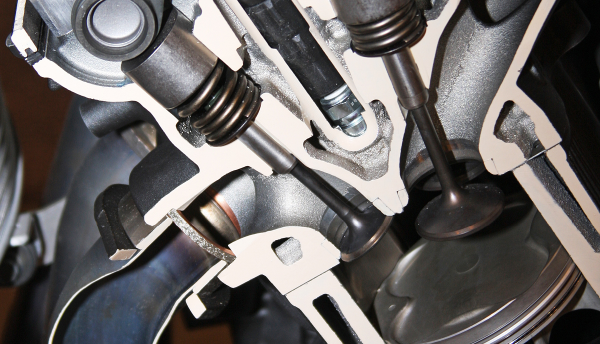
Bosch has indicated that it has developed an engine management system that would enable cylinder deactivation for small engines. In addition, the auto-parts supplier believes that using cylinder deactivation along with direct injection, friction reduction, and a heat exchanger for exhaust gas recirculation could improve fuel economy by as much as 20%, according to an Automotive News report. Heiko Weller, Bosch's North American vice-president for engineering gasoline (petrol) systems, said, "It is something that we are working on. It's possible and it has potential." Weller says that the system is more difficult than when applied to V6 or V8 engines, which shut down half of the engine's cylinders. He also says that to avoid pumping losses, one or two cylinders would have to be shut down completely, and that shutdown must be imperceptible to the driver, as well as reactivating idle cylinders for highway overtaking maneouvres. Weller said, "The controls are the challenging part. It becomes rather complicated." However, he predicts that the cylinder deactivation alone could improve fuel efficiency by 4-5%. The executive expects that automakers will take the mixed application solution to achieve fuel-economy improvements, more so than relying heavily on hybrid powertrains or fuel-cell solutions to meet the US requirement of a CAFE (corporate average fuel economy) of 54.5 mpg by 2025. He said, "It's a combination of technologies that can get you to 20%. You don't need to go directly to electrification."
Significance: Currently, Volkswagen and Honda are the only automakers offering a 4-cylinder engine with cylinder deactivation, which is not available in the United States. According to the IHS Automotive engine production forecast, Mazda and Fuji are expected to introduce small engines with the solution. In May, only 10,623 pure electric vehicles were sold, along with 41,000 hybrids and 33,389 diesel engines (only 13,553 units excluding pick-up trucks) − a month in which 1.63 million light vehicles were sold. At this ratio of 5.2% of total monthly sales, consumer demand significantly lags prescribed CAFE. Fuel-efficient solutions need to be as seamless as possible for consumers, which might be a challenge for the proposed configuration.








